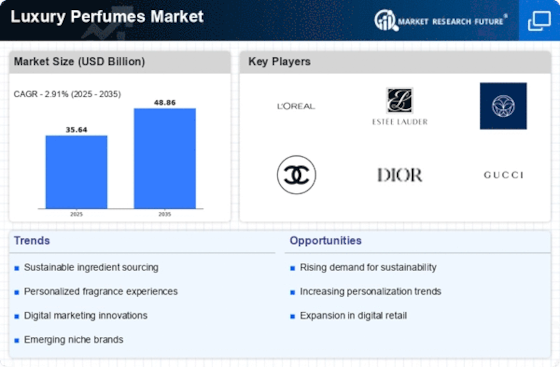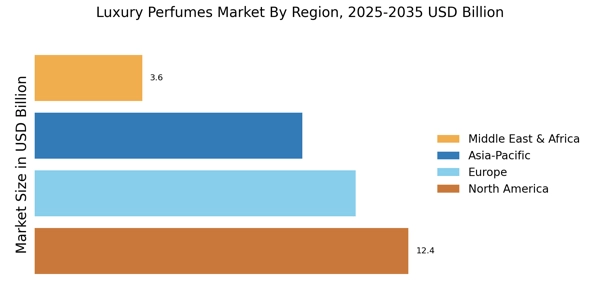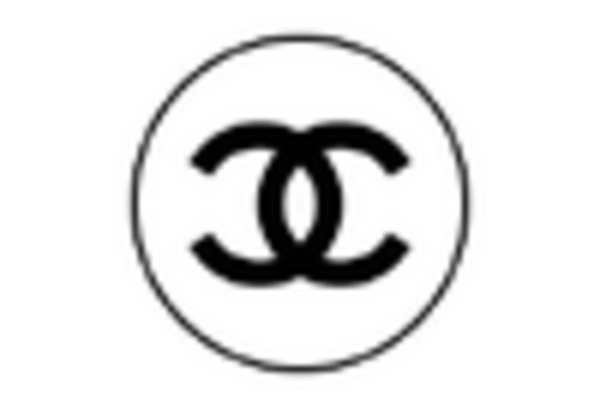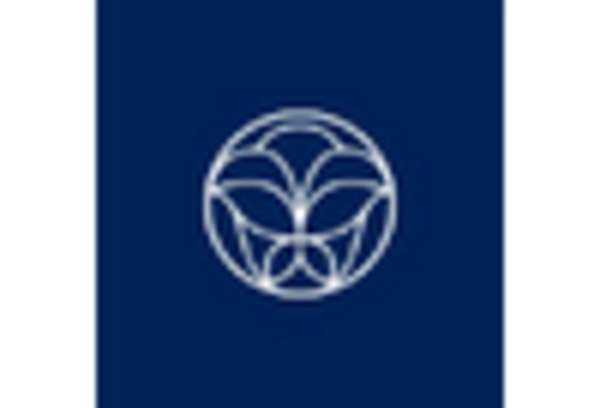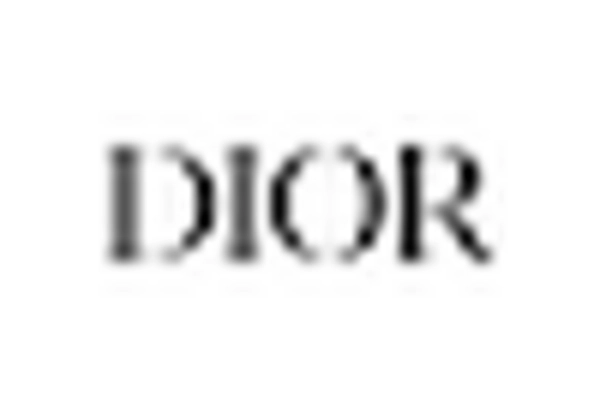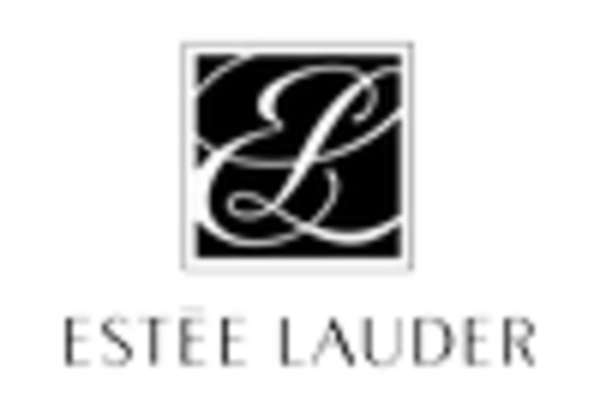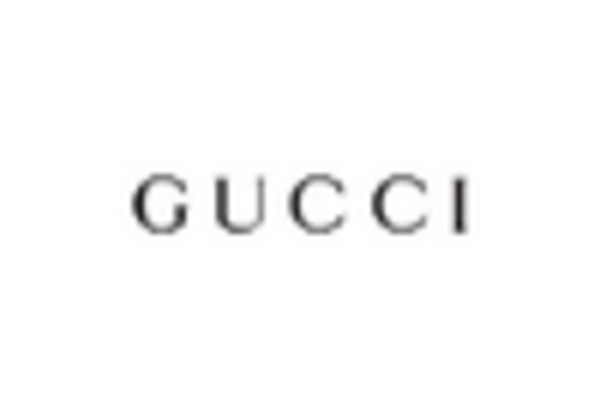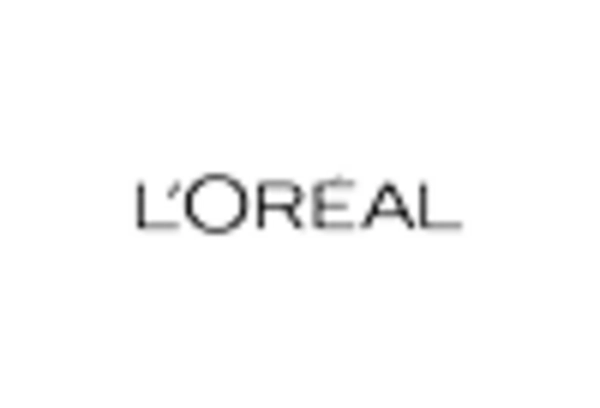Expansion of Retail Channels
The Luxury Perfumes Market is benefiting from the expansion of retail channels, which enhances accessibility for consumers. Traditional brick-and-mortar stores are increasingly complemented by online platforms, allowing consumers to purchase luxury fragrances with ease. The rise of e-commerce has transformed the shopping experience, enabling brands to reach a wider audience. Recent statistics indicate that online sales of luxury perfumes have surged, accounting for a significant portion of total sales in the industry. This trend suggests that as retail channels diversify, the Luxury Perfumes Market is likely to experience sustained growth, as consumers enjoy the convenience of purchasing their favorite fragrances from various platforms.
Increasing Disposable Income
The Luxury Perfumes Market is experiencing a notable surge in demand, primarily driven by the increasing disposable income of consumers. As individuals attain higher income levels, they tend to allocate a portion of their earnings towards luxury goods, including high-end fragrances. This trend is particularly evident in emerging markets, where a burgeoning middle class is becoming more inclined to invest in premium products. According to recent data, the luxury goods sector, which encompasses perfumes, is projected to grow at a compound annual growth rate of approximately 5% over the next few years. This growth indicates a robust appetite for luxury fragrances, suggesting that as disposable income rises, so too does the willingness to purchase luxury perfumes, thereby propelling the Luxury Perfumes Market forward.
Growing Demand for Personalization
The Luxury Perfumes Market is witnessing a growing demand for personalized fragrances, as consumers increasingly seek unique and tailored experiences. This trend is driven by a desire for individuality and self-expression, prompting brands to offer customizable options. Recent market analysis suggests that personalized perfumes can command a premium price, as consumers are willing to pay more for products that reflect their personal identity. This shift towards personalization not only enhances customer satisfaction but also fosters brand loyalty. As the Luxury Perfumes Market adapts to these consumer preferences, it is likely to see an expansion in offerings that cater to bespoke fragrance experiences, thereby enhancing overall market growth.
Emphasis on Sustainability and Eco-Friendly Products
The Luxury Perfumes Market is increasingly focusing on sustainability and eco-friendly products, reflecting a broader consumer shift towards environmentally conscious purchasing. Brands are now prioritizing sustainable sourcing of ingredients and eco-friendly packaging, appealing to a demographic that values ethical consumption. Recent surveys indicate that a substantial percentage of consumers are willing to pay a premium for products that align with their values regarding sustainability. This trend not only enhances brand reputation but also drives sales within the Luxury Perfumes Market. As awareness of environmental issues continues to grow, it is likely that sustainability will play a pivotal role in shaping the future of luxury fragrances.
Influence of Social Media and Celebrity Endorsements
The Luxury Perfumes Market is significantly influenced by social media platforms and celebrity endorsements. In an era where digital presence is paramount, brands leverage social media to create awareness and desirability for their products. Influencers and celebrities often showcase luxury perfumes, which can lead to increased consumer interest and sales. Data indicates that brands that engage in social media marketing experience a higher rate of customer engagement and conversion. This trend is particularly pronounced among younger consumers, who are more likely to be swayed by online recommendations. As a result, the Luxury Perfumes Market is likely to continue evolving, with brands investing heavily in digital marketing strategies to capture the attention of potential buyers.


